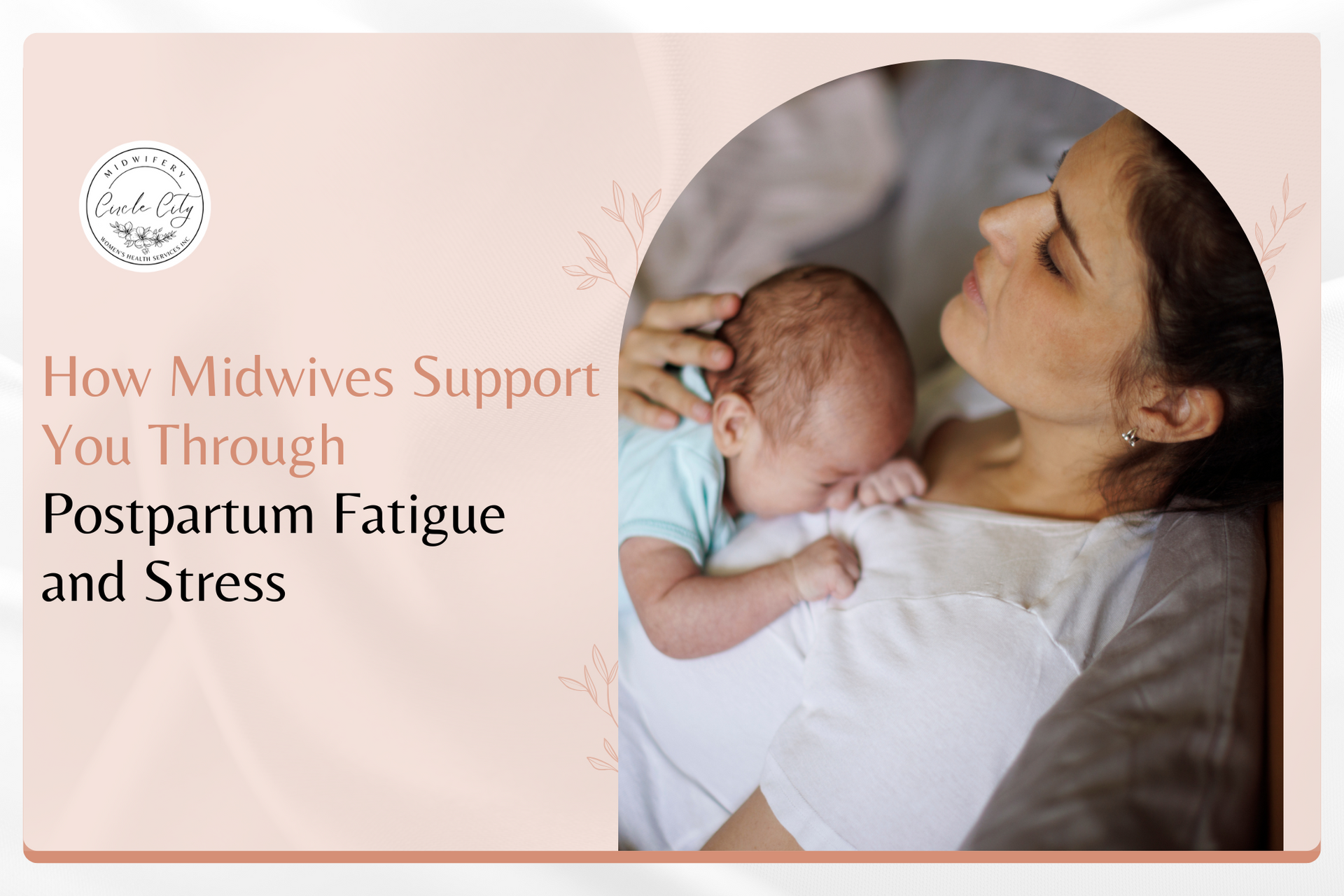For many women, menopause begins quietly. Maybe it’s a few sleepless nights, a sudden hot flash, or mood changes that feel hard to explain. At first, these shifts seem small, but over time, they can be harder to ignore.
What makes this stage even more confusing is that no two women experience it the same way. A friend may breeze through with just a handful of hot flashes, while you may be dealing with irregular cycles, brain fog, or emotions that feel out of balance. It’s easy to wonder: Is this normal, or should I talk to someone?
That’s exactly why we’re here. At Circle City Midwifery, we believe you shouldn’t have to navigate these questions alone. This blog will guide you through the signs and how holistic menopause management can help you feel supported, cared for, and confident as you navigate this important season of life.
Step Into This New Chapter with Confidence
Understanding Menopause and Perimenopause
As you move through midlife, your body begins to undergo changes that may feel unfamiliar. These changes are part of a natural transition, but they can still prompt questions and uncertainty. Knowing what to expect can help you feel more in control and reassured about what your body is going through.
is when you have gone 12 months without a period. The stage before that, called
perimenopause, can last for several years as hormone levels begin to shift. This is usually when most symptoms start to show up, and for many women, it can feel like a rollercoaster of physical and emotional changes. That’s why having access to the right perimenopause support is crucial to make these shifts easier to manage.
Some of the most common symptoms include:
- Hot flashes or sudden waves of heat
- Night sweats that disrupt sleep
- Mood swings or heightened irritability
- Irregular or changing menstrual cycles
- Vaginal dryness or discomfort
- Difficulty concentrating or “brain fog”
- Fatigue or low energy
When Symptoms Interfere with Daily Life
Some menopause symptoms are manageable, but others can start to disrupt your everyday life. When hot flashes, sleepless nights, or mood shifts affect how you work, rest, or connect with others, it’s a good time to see a provider.
You may notice:
- Night sweats – leaving you wide awake and exhausted the next day
- Mood changes or irritability – putting strain on your relationships
- Brain fog – making it hard to focus or stay productive at work
- Ongoing fatigue – keeping you from enjoying activities you once loved
You don’t have to wait until things feel unbearable before asking for help. Talking with a provider can give you tailored
menopause management strategies so you can get back to feeling rested, balanced, and more like yourself again.
Red Flag Symptoms That Shouldn't Be Ignored
While many menopause symptoms are expected, some changes deserve more attention. Certain signs may indicate something more serious, and it’s always better to consult a provider rather than wait and wonder. Knowing when to see a provider about menopause symptoms can help you catch potential health issues early.
Be sure to reach out if you experience:
- Heavy or unusual bleeding after menopause
- Severe pelvic pain or sudden changes in your cycle
- Unexplained weight loss, weight gain, or constant fatigue
- Symptoms that could point to other health issues, such as thyroid problems, anemia, or heart concerns
Listening to your body and taking these symptoms seriously is an important part of protecting your health.
Managing Emotional and Mental Health Challenges
Menopause can also stir up your emotions. Mood swings, anxiety, or even feelings of sadness may appear during this transition. These changes are common, but that doesn’t make them any less challenging to live with. The good news is that menopause symptoms treatment can support not only your physical health but also your emotional well-being, helping you feel more balanced and in control.
Reach out for support if you notice:
- Ongoing sadness or hopelessness
- Anxiety that interferes with daily life
- Mood swings that strain relationships
- Feeling overwhelmed or unlike yourself
A Partner in Your Menopause Journey
Finding the right
menopause care clinic can make all the difference when symptoms begin to disrupt your life.
At Circle City Midwifery, we believe every woman deserves care that’s personal, supportive, and tailored to her unique needs. Together, we can explore care options such as:
- Hormone and non-hormone treatments to ease hot flashes, mood shifts, and sleep struggles.
- Lifestyle and nutrition guidance that helps you feel stronger and more balanced.
- Pelvic health support to improve comfort and intimacy.
- Referrals to trusted specialists if you need extra care beyond our services.
Offering personalized menopause care, our
care team will walk alongside you to help you feel stronger, more balanced, and confident through every stage of this transition.
Your Menopause Journey, Your Way
You don’t have to push through menopause symptoms on your own. Support, relief, and answers are within reach, and seeking care is a big step toward regaining your sense of self. At Circle City Midwifery, we focus on gentle, practical menopause management that offers comfort and clarity during this phase of life.
Menopause is not just something to “get through.” With proper support, it can be an empowering transition into a new chapter of life. If you’re ready to take the next step, book a consultation with us and discover how much better this journey can feel with compassionate care by your side.
Start Your Menopause Care Journey With Us
Frequently Asked Questions
How do I know if my symptoms are related to menopause or another health issue?
Sometimes symptoms like fatigue, mood changes, or irregular cycles overlap with other conditions such as thyroid problems or anemia. If your symptoms feel unusual, intense, or different from what friends describe, it’s a good idea to check in with a provider.
When should I be concerned about bleeding during menopause?
Any bleeding after 12 months without a period should be evaluated. While it doesn’t always mean something serious, it’s a red flag symptom worth discussing with your provider.
Do I need to see a provider if my symptoms are mild?
Even mild symptoms are worth discussing if they impact your quality of life. A provider can offer reassurance, education, and small changes that may prevent symptoms from becoming harder to manage later on.
How do emotional changes during menopause differ from depression or anxiety?
Mood shifts are common, but if sadness or worry lingers most of the day, lasts for weeks, or affects your daily life, it may be more than hormone-related. A provider can help sort out what’s happening and guide you toward the right support.














